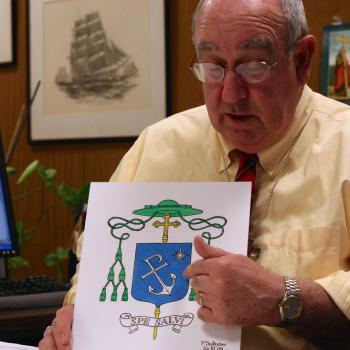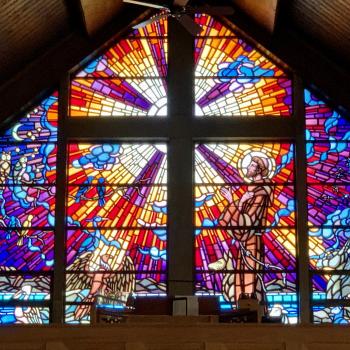A great piece in Chicago Catholic this week marks the 50th anniversary of the restoration of the diaconate and describes the formation process in some detail — and one aspect of critical importance, the sacrament of marriage:
Men spend the aspirancy year doing more discernment, Deacon Bob Puhala said, making sure they truly do have a vocation to be an ordained deacon.
During that time, Puhala said, the men and their pastors are asked to not announce that they are in diaconate formation to their parishes to avoid raising expectations.
“We don’t expect guys to know whether God is really calling them to the diaconate until after that year,” Puhala said.
A board meets with the men after they finish their aspirancy and discerns with them whether they should move on to the three-year deacon candidate program.
That program includes the four dimensions of diaconate ministry.
To form them in the spiritual dimension, each man meets with a spiritual director who is a priest, and attends retreats and reflection days. Two classes a semester — often the same classes as the seminarians take — form the intellectual dimension. As part of the pastoral dimension, the men learn how to be good listeners, how to give a homily and how to do liturgy. The human dimension includes service to the marginalized, as well understanding their own gifts and talents.
“The question is what a person can bring to the diaconate, and thus to the people of God,” Puhala said. “It’s much more important to understand who the deacon is, rather than understand what he does.”
The formation prepares men for deacons’ three-fold ministry: ministry of the Word, ministry in liturgy and ministry of charity.
“The deacon is literally is the eyes and the ears of the bishop,” Puhala said. “He is the bishop’s agent. He is the sacramental icon of Christ in service to the world.”
About 99 percent of deacons work outside the church, Puhala said, although, just like priests, deacons are deacons 24 hours a day, seven days a week.
Wives participate in certain key experiences, Puhala said, such as days of reflection and retreats, because they have to know and support the ministry their husbands are entering. Many choose to also participate in the academic classes.
“The sacramental marriage needs to be protected at all costs,” Puhala said. “Satan would love to use one sacrament — Holy Orders — to undermine another sacrament.”
Katarzyna A. Kasiarz, associate director of the Institute for Diaconal Studies, said the wives have the chance not only to learn about their husbands’ ministry but also to get to know one another.
“We want the women to have their own support group,” Kasiarz said. “Where they can talk about the joys but also the frustrations that come with it. They end up being a support system for one another.”













